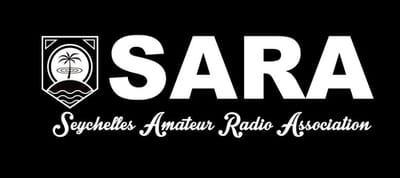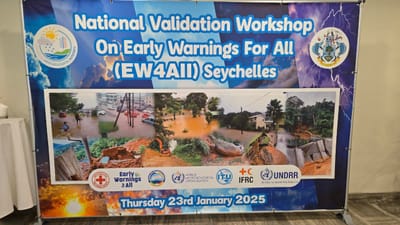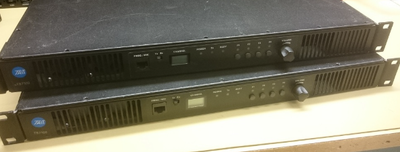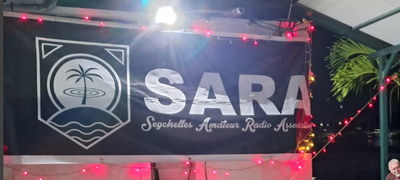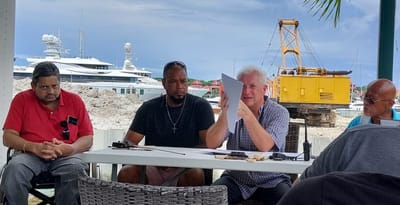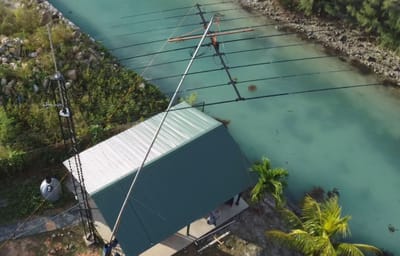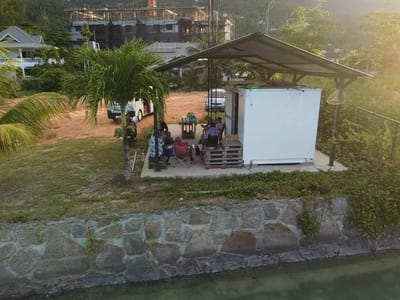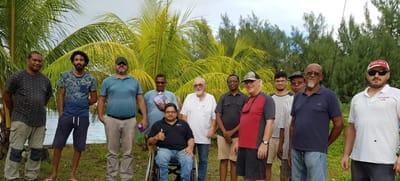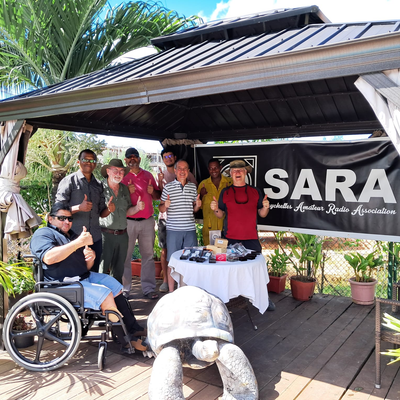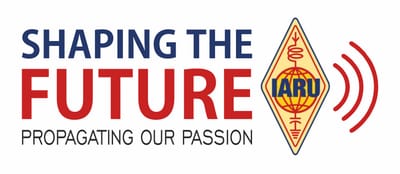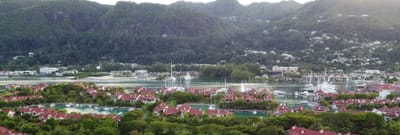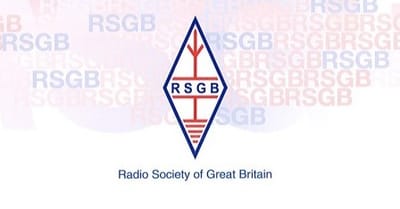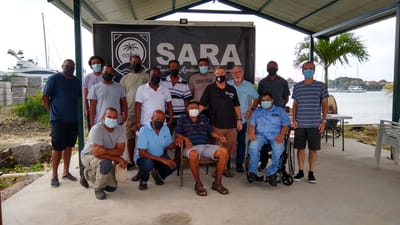Amateur Radio Community Supports Seychelles' Early Warnings for All (EW4ALL) Initiative
Read MoreVision - Mission Statement
Updated: 19th March 2024
2024-2025
Vision Statement
We will continue to promote our core values and bring amateur radio to the residents and visitors to Seychelles.
Core values that represent what it means to be a member of SARA;
Friendship:
Through social gatherings and communication over radio systems here in Seychelles and with the rest of the world you belong to a fraternity of similar minded individuals who seek to acquire additional knowledge and understanding of radio systems with possibly related IT together with other peoples perspectives and experience.
Challenge:
By being involved in projects that you yourself want to do using objectives and ambitions that you have set yourself, you build your confidence and self esteem. You self develop your knowledge.
Community:
By excluding politics and religion from any activities, we avoid confrontation and seek out ways in which we can help each other and the rest of our community. We train so that we can assist with recovering from natural disasters.
Centre of Excellence:
By aspiring to provide a center of technical excellence for RF systems, we strive to provide a valuable reference point for those seeking assistance in our field of expertise.
Mission Statement
We will aspire to complete the following;
2024-2025
Vision Statement
We will continue to promote our core values and bring amateur radio to the residents and visitors to Seychelles.
Core values that represent what it means to be a member of SARA;
Friendship:
Through social gatherings and communication over radio systems here in Seychelles and with the rest of the world you belong to a fraternity of similar minded individuals who seek to acquire additional knowledge and understanding of radio systems with possibly related IT together with other peoples perspectives and experience.
Challenge:
By being involved in projects that you yourself want to do using objectives and ambitions that you have set yourself, you build your confidence and self esteem. You self develop your knowledge.
Community:
By excluding politics and religion from any activities, we avoid confrontation and seek out ways in which we can help each other and the rest of our community. We train so that we can assist with recovering from natural disasters.
Centre of Excellence:
By aspiring to provide a center of technical excellence for RF systems, we strive to provide a valuable reference point for those seeking assistance in our field of expertise.
Mission Statement
We will aspire to complete the following;
- Install and optimise at least 4 additional UHF repeaters;
- S78SARB Sans Souci - host S79CMW
- S78SARC Au Cap - host S79PAT
- S78SARD Mare Anglais - host S79AEQ
- S78SARE Anse Soleil - host S79PAT and friend - off grid (greater challenge) to serve west coast
- Link all repeaters including S78SARA at La Misere using Allstarlink
- Develop ability to assist with Emergency Comms and plan further repeater expansion
- Install cable tray to tidy up cables entering the shack in the vertical plane
- Install blinds around some of the perimeter of the shelter to protect from wind driven rain and sun
- Complete the QDX transceiver project and experiment with antennae that
can be used for DX and NVIS - Conduct training to enable more people to gain their operations licence
- Every licenced operator ideally should have the following experience;
- set themselves up and used a UHF repeater (portable and mobile)
- worked HF SSB (using the SARA equipment or their own)
- assisted with a DX contest
Support us - DOnation
Amateur radio has been gaining popularity among individuals of all ages, including school children. We strongly believe that introducing this hobby to younger generations will not only provide them with valuable technical skills but also foster a sense of curiosity, exploration, and connection with the world around them.
To achieve this goal, we are planning to organize classes specifically tailored for schools and kids. However, we face a challenge - our current premises lack essential facilities required to conduct these classes effectively. We need your support to create a conducive learning environment that will inspire young minds and enable them to explore the vast possibilities of amateur radio.
With your generous contribution, no matter how big or small, we can equip our premises with the necessary tools, supplies, and technological resources. Your donation will directly impact the quality of education we can provide to aspiring young radio enthusiasts in Seychelles.
We appreciate any form of support you can offer - whether it's a monetary donation or any equipment that can be used for educational purposes.
Every contribution brings us one step closer to achieving our vision of a thriving amateur radio community here in Seychelles.
To make your donation please contact us or simple use PayPal transfer facility as a "Gift" to: jaya@corecloud.biz with subject: SARA-Donation
Together, let's empower future generations with the knowledge and skills they need for success!
Once again, thank you for being an integral part of our journey so far. Your continued support is invaluable as we work towards creating exciting opportunities for amateurs of all ages in Seychelles.
Please note all donations are accounted and presented to all society members and included in AGM.
Warm regards,
Seychelles Amateur Radio Association.
★ REGULATIONS ★
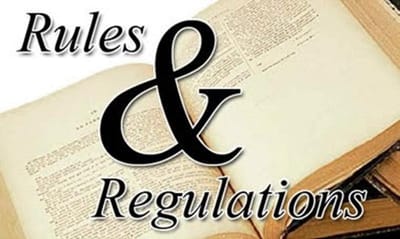
SEYCHELLES LICENSED RADIO AMATEUR RULES AND REGULATIONS
Below are rules and regulations that have to be followed by licensed radio operator in the Seychelles. Please note lack of compliance with below rules and regulations may lead to legal consequences.
1. Latest Version of Proposed Framework to regulate amateur radio in Seychelles, document version is: "Issue 1.8 18th July 2021" and can be downloaded here:
LATEST VERSION OF RULES AND REGULATION CAN BE DOWNLOADED HERE
NOTE: If you are accessing this document directly from the SARA website the document is controlled and is therefore the latest version. Any printed or electronically distributed copy is uncontrolled and you should consult the author to ascertain if you are working with the most up to date version.
2. The Seychelles amateur radio spectrum and power plan can be downloaded from here:
http://www.ict.gov.sc/homecnt/policies.aspx
3. The IARU Region 1 band plans can be accessed here:
https://www.iaru-r1.org/on-the-air/band-plans/
^Page updated on 27th Sept 2021 by S79KW
Below are rules and regulations that have to be followed by licensed radio operator in the Seychelles. Please note lack of compliance with below rules and regulations may lead to legal consequences.
1. Latest Version of Proposed Framework to regulate amateur radio in Seychelles, document version is: "Issue 1.8 18th July 2021" and can be downloaded here:
LATEST VERSION OF RULES AND REGULATION CAN BE DOWNLOADED HERE
NOTE: If you are accessing this document directly from the SARA website the document is controlled and is therefore the latest version. Any printed or electronically distributed copy is uncontrolled and you should consult the author to ascertain if you are working with the most up to date version.
2. The Seychelles amateur radio spectrum and power plan can be downloaded from here:
http://www.ict.gov.sc/homecnt/policies.aspx
3. The IARU Region 1 band plans can be accessed here:
https://www.iaru-r1.org/on-the-air/band-plans/
^Page updated on 27th Sept 2021 by S79KW
Latest News
End of 2024 has finally arrived, Let's celebrate the season together with joy and warmth. Don't miss out on this special event!
Read More2-year project of setting up local club station finally arrived to its final days
Read MoreFor the first time in history of Seychelles Amateur Radio, a club callsign S77SARA has been officially launched with a great success of international pileup.
Read More2023 Successful Annual General Meeting took place at SARA Club Station on 20th of May.
Read MoreSARA Receives kind donation of QDX Kits to start the study of HF-DX and HF-NVIS propagation.
Read MoreThere is a number of projects that you can get involved with that all go towards the following key objectives
Read MoreEnd of Year 2022 summary
Read MoreSARA completed 2022 Annual General Meeting with Shack opening.
Read MoreSafety Notice
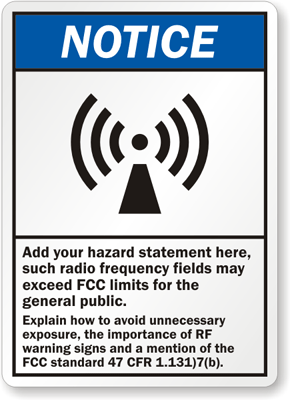
Dear Members and Associates
You all need to be careful when you set-up your radio installation at your home or in the field. There are two basic areas; Electrical safety (which includes the earthing system) and RF radiation safety.
1.0 Electrical Safety
To safeguard your life and that of others you must always have your electrical installation installed by and/or checked by a qualified electrician.
You are aware from your training that you NEVER install your antenna near overhead PUC mains feed cables so that in the case of a mechanical failure your antenna or mast/tower would touch those cables.
You should also use lightning protection systems to prevent any lightning strikes travelling back to your equipment and you in the 'shack'.
2.0 RF Safety
When you transmit RF energy from an antenna you need to be aware of the required exclusion zone dimensions and the measures you need to take to prevent other people from accidentally entering that zone whilst you are transmitting and cannot see the exclusion zone. The size of the exclusion zone depends on the amount of power being transmitted, the gain of the antenna and the frequency of the RF signal. This link below takes you to a very respectable source of information which you should take time to read and those documents that it refers to within the document.
https://www.ofcom.org.uk/__data/assets/pdf_file/0028/220798/emf-licence-condition-what-you-need-to-know-amateur-radio.pdf
If you have any questions or require advice on how to best build your shack there is a lot of useful information on the RSGB site on the link below
https://rsgb.org/main/get-started-in-amateur-radio/setting-up-your-shack/safety-in-the-shack/
You all need to be careful when you set-up your radio installation at your home or in the field. There are two basic areas; Electrical safety (which includes the earthing system) and RF radiation safety.
1.0 Electrical Safety
To safeguard your life and that of others you must always have your electrical installation installed by and/or checked by a qualified electrician.
You are aware from your training that you NEVER install your antenna near overhead PUC mains feed cables so that in the case of a mechanical failure your antenna or mast/tower would touch those cables.
You should also use lightning protection systems to prevent any lightning strikes travelling back to your equipment and you in the 'shack'.
2.0 RF Safety
When you transmit RF energy from an antenna you need to be aware of the required exclusion zone dimensions and the measures you need to take to prevent other people from accidentally entering that zone whilst you are transmitting and cannot see the exclusion zone. The size of the exclusion zone depends on the amount of power being transmitted, the gain of the antenna and the frequency of the RF signal. This link below takes you to a very respectable source of information which you should take time to read and those documents that it refers to within the document.
https://www.ofcom.org.uk/__data/assets/pdf_file/0028/220798/emf-licence-condition-what-you-need-to-know-amateur-radio.pdf
If you have any questions or require advice on how to best build your shack there is a lot of useful information on the RSGB site on the link below
https://rsgb.org/main/get-started-in-amateur-radio/setting-up-your-shack/safety-in-the-shack/
QSL Card Management in SEYCHELLES
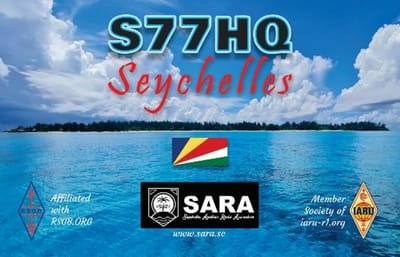
All about QSL cards and QSL Management:
This is S79JKN, and my name is Jaya Nair, and I am very proud to be appointed by SARA Seychelles to be the National QSL Manager in our region.
What does QSL mean and what is the job of a QSL Manager?
QSL means either “do you confirm receipt of my transmission” or “I confirm receipt of your transmission”. It can also mean “please send me a QSL card”.
A QSL card is a written form of QSL, a confirmation of contact between two parties. Traditionally, amateurs traded QSL cards and the style still goes on. Usually about the same size as a postcard, often elaborately decorated to express individuality or a country, and the cards are mailed from person to person. Amateur radio is gradually becoming popular in Seychelles and it is considered as a ‘rare new contact’. Hence, we at SARA have designed a couple of cards to portray the same…unique by a thousand miles !
SARA QSL cards


The concept of the QSL bureau enables cards to be sent in bulk at all stages of the journey from sender to recipient.
Senders send their QSL cards to the bureau. Here they are sorted and when sufficient cards have accumulated to be sent to the recipient, they are mailed to him / her. Typically, any user who is able to receive cards via the QSL bureau will lodge their QSL cards with the bureau so that they can be sent when enough cards accumulate.
Naturally as cards have to wait until sufficient cards have accumulated for them to be sent at each stage of their journey, it can take a few months for them to arrive. It is not unusual for replies to take a couple of months, and so patience is definitely needed when sending cards via the QSL bureau.
Most of the countries with large amateur radio populations have a QSL bureau. However, there are many countries where there is no bureau because the number of ham radio stations is small. Here in Seychelles SARA has reached out to me to serve as their manager for the QSL Bureau and we have been accepting and sending cards since early last year.
So, what does the QSL bureau does
Outgoing QSL cards: When sending cards out through the QSL bureau, they can be assembled at the bureau. It normally helps to sort them into countries and also where applicable, into call areas. All the cards are clearly marked with the callsign of the recipient. The back of the cards are clearly marked as well with the call sign of individuals and details of the QSL.
Back of a QSL card
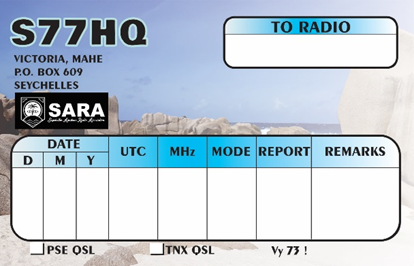
The cards should be sent in a sufficiently strong envelope to ensure safe transit. It is also necessary to ensure that the required postage is paid. With a number of cards in a given envelope it is necessary to make sure the weight or size limit is not exceeded. The envelope is then sent to the required address of the QSL request.
Incoming QSL cards: QSL cards coming to us are normally sent to SARA/individual registered members or to myself as QSL bureau manager for SARA and they mostly come with self-addressed envelopes with either pre-paid stamps or with a contribution to bear the cost of sending them back with one of our own QSL card. With modern technology and the internet these days, incoming cards are requested online and a minimum payment of US$ 3 for processing our card to be sent to them (purpose of stamps and envelopes and logistics). This method has surpassed the methods of sending cards and receiving by postal services. If you are a collector of QSL cards, and there are many, it is not a great idea for them.
These are general concepts for using a QSL bureau
Here at SARA, I am happy to announce that, we regularly receive QSL cards and requests through postal services but most popularly nowadays through online request!
S79JKN
Jaya Nair
This is S79JKN, and my name is Jaya Nair, and I am very proud to be appointed by SARA Seychelles to be the National QSL Manager in our region.
What does QSL mean and what is the job of a QSL Manager?
QSL means either “do you confirm receipt of my transmission” or “I confirm receipt of your transmission”. It can also mean “please send me a QSL card”.
A QSL card is a written form of QSL, a confirmation of contact between two parties. Traditionally, amateurs traded QSL cards and the style still goes on. Usually about the same size as a postcard, often elaborately decorated to express individuality or a country, and the cards are mailed from person to person. Amateur radio is gradually becoming popular in Seychelles and it is considered as a ‘rare new contact’. Hence, we at SARA have designed a couple of cards to portray the same…unique by a thousand miles !
SARA QSL cards


The concept of the QSL bureau enables cards to be sent in bulk at all stages of the journey from sender to recipient.
Senders send their QSL cards to the bureau. Here they are sorted and when sufficient cards have accumulated to be sent to the recipient, they are mailed to him / her. Typically, any user who is able to receive cards via the QSL bureau will lodge their QSL cards with the bureau so that they can be sent when enough cards accumulate.
Naturally as cards have to wait until sufficient cards have accumulated for them to be sent at each stage of their journey, it can take a few months for them to arrive. It is not unusual for replies to take a couple of months, and so patience is definitely needed when sending cards via the QSL bureau.
Most of the countries with large amateur radio populations have a QSL bureau. However, there are many countries where there is no bureau because the number of ham radio stations is small. Here in Seychelles SARA has reached out to me to serve as their manager for the QSL Bureau and we have been accepting and sending cards since early last year.
So, what does the QSL bureau does
Outgoing QSL cards: When sending cards out through the QSL bureau, they can be assembled at the bureau. It normally helps to sort them into countries and also where applicable, into call areas. All the cards are clearly marked with the callsign of the recipient. The back of the cards are clearly marked as well with the call sign of individuals and details of the QSL.
Back of a QSL card

The cards should be sent in a sufficiently strong envelope to ensure safe transit. It is also necessary to ensure that the required postage is paid. With a number of cards in a given envelope it is necessary to make sure the weight or size limit is not exceeded. The envelope is then sent to the required address of the QSL request.
Incoming QSL cards: QSL cards coming to us are normally sent to SARA/individual registered members or to myself as QSL bureau manager for SARA and they mostly come with self-addressed envelopes with either pre-paid stamps or with a contribution to bear the cost of sending them back with one of our own QSL card. With modern technology and the internet these days, incoming cards are requested online and a minimum payment of US$ 3 for processing our card to be sent to them (purpose of stamps and envelopes and logistics). This method has surpassed the methods of sending cards and receiving by postal services. If you are a collector of QSL cards, and there are many, it is not a great idea for them.
These are general concepts for using a QSL bureau
Here at SARA, I am happy to announce that, we regularly receive QSL cards and requests through postal services but most popularly nowadays through online request!
S79JKN
Jaya Nair
What is Amateur Radio ?
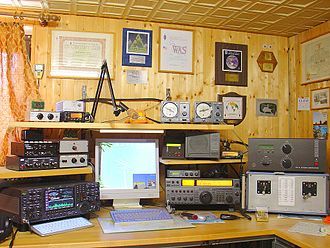

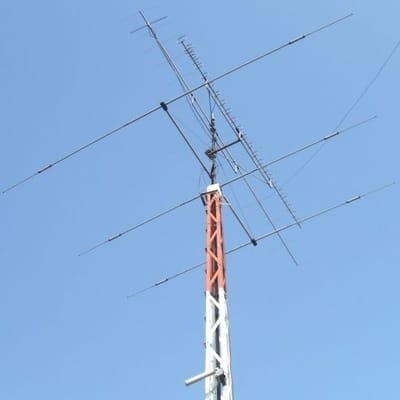
Amateur radio, also known as ham radio, is the use of radio frequency spectrum for purposes of non-commercial exchange of messages, wireless experimentation, self-training, private recreation, radiosport, contesting, and emergency communication. The term "amateur" is used to specify "a duly authorised person interested in radioelectric practice with a purely personal aim and without pecuniary interest;"[1] (either direct monetary or other similar reward) and to differentiate it from commercial broadcasting, public safety (such as police and fire), or professional two-way radio services (such as maritime, aviation, taxis, etc.).
The amateur radio service (amateur service and amateur-satellite service) is established by the International Telecommunication Union (ITU) through the Radio Regulations. National governments regulate technical and operational characteristics of transmissions and issue individual stations licenses with a unique identifying call sign, which must be used in all transmissions. Amateur operators must hold an amateur radio license which is obtained by passing a government test demonstrating adequate technical radio knowledge and legal knowledge of the host government's radio regulations.
Radio amateurs are limited to the use of small frequency bands, the amateur radio bands, allocated throughout the radio spectrum, but within these bands are allowed to transmit on any frequency using a variety of voice, text, image, and data communications modes. This enables communication across a city, region, country, continent, the world, or even into space. In many countries, amateur radio operators may also send, receive, or relay radio communications between computers or transceivers connected to secure virtual private networks on the Internet.
Amateur radio is officially represented and coordinated by the International Amateur Radio Union (IARU), which is organized in three regions and has as its members the national amateur radio societies which exist in most countries. According to an estimate made in 2011 by the American Radio Relay League, two million people throughout the world are regularly involved with amateur radio.[2] About 830,000 amateur radio stations are located in IARU Region 2 (the Americas) followed by IARU Region 3 (South and East Asia and the Pacific Ocean) with about 750,000 stations. A significantly smaller number, about 400,000, are located in IARU Region 1 (Europe, Middle East, CIS, Africa).
*Source of Information (Read More): Wikipedia
The amateur radio service (amateur service and amateur-satellite service) is established by the International Telecommunication Union (ITU) through the Radio Regulations. National governments regulate technical and operational characteristics of transmissions and issue individual stations licenses with a unique identifying call sign, which must be used in all transmissions. Amateur operators must hold an amateur radio license which is obtained by passing a government test demonstrating adequate technical radio knowledge and legal knowledge of the host government's radio regulations.
Radio amateurs are limited to the use of small frequency bands, the amateur radio bands, allocated throughout the radio spectrum, but within these bands are allowed to transmit on any frequency using a variety of voice, text, image, and data communications modes. This enables communication across a city, region, country, continent, the world, or even into space. In many countries, amateur radio operators may also send, receive, or relay radio communications between computers or transceivers connected to secure virtual private networks on the Internet.
Amateur radio is officially represented and coordinated by the International Amateur Radio Union (IARU), which is organized in three regions and has as its members the national amateur radio societies which exist in most countries. According to an estimate made in 2011 by the American Radio Relay League, two million people throughout the world are regularly involved with amateur radio.[2] About 830,000 amateur radio stations are located in IARU Region 2 (the Americas) followed by IARU Region 3 (South and East Asia and the Pacific Ocean) with about 750,000 stations. A significantly smaller number, about 400,000, are located in IARU Region 1 (Europe, Middle East, CIS, Africa).
*Source of Information (Read More): Wikipedia
What Do We Do ?
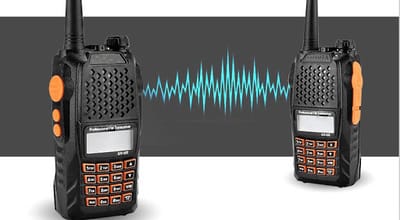
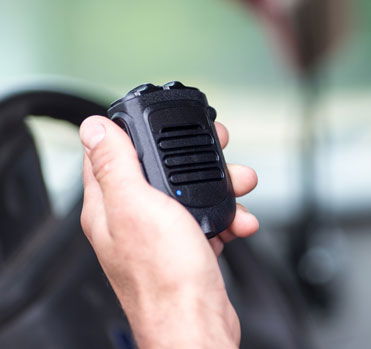

What Do We Do ?
We communicate to each other and other radio amateurs all over the world using radio transceivers tuned to dedicated amateur radio frequencies. There are many types of equipment and aerials that we experiment with. We share our experiences and help each other learn more and more all the time.
How Do We Do it ?
We follow training courses that lead to an examination. If we pass, we obtain a Certificate of Proficiency that is recognized by the Seychelles Government Department of ICT who then in conjunction with the Seychelles Licensing Authority issue us with an official Seychelles S79 call sign.
We communicate to each other and other radio amateurs all over the world using radio transceivers tuned to dedicated amateur radio frequencies. There are many types of equipment and aerials that we experiment with. We share our experiences and help each other learn more and more all the time.
How Do We Do it ?
We follow training courses that lead to an examination. If we pass, we obtain a Certificate of Proficiency that is recognized by the Seychelles Government Department of ICT who then in conjunction with the Seychelles Licensing Authority issue us with an official Seychelles S79 call sign.
SARA Constitution
DOWNLOAD LINK: DOWNLOAD A COPY OF SARA CONSTITUTION
_________________________________________________________________________________________________
CONSTITUTION
Version 3.0 30_5_20
1. NAME OF THE ASSOCIATION
The Association shall bear the name SEYCHELLES AMATEUR RADIO ASSOCIATION
2. PLACE OF BUSINESS
The place of business of the Association shall be at THE RESIDENCE OF MR RICHARD JOHN PERKS
– LA MISERE, MAHE or any other place in the Seychelles which the Association may from time to time determine.
3. OBJECTIVES
Subject to the Associations Act, the quorum for an Annual General Meeting or a General Meeting shall be not less than three-fifths of the total number of Ordinary members of the registered Association. Not less than three fifths need to be present in person or by proxy. It shall be lawful for two-thirds of the number of members present in person or by proxy at such meeting to add to, alter or otherwise amend the rules of the Association.
5. DUTIES OF THE OFFICE BEARERS ON THE MANAGEMENT COMMITTEE
Chairperson
The Vice-Chairperson
8. APPEAL AGAINST REJECTION OR TERMINATION OF MEMBERSHIP
Voting at all AGM's or EGM's shall be by show of hands or by secret ballots as may be decided by the majority of members present
11. APPOINTMENT OF AUDITOR
The treasurer shall cause the accounts and financial records to be audited by an auditor appointed by the members of an AGM.
The audited statement of accounts shall be presented to the AGM for its approval or otherwise.
12. INSPECTION OF BOOKS
The records of the proceeding of the Management Committee (MC) and the Annual General Meetings and General Meetings, the audited accounts and record containing the names of the members shall be open to inspection by the members during such reasonable times and place which the MC may notify to the members.
13. AMENDMENT TO CONSTITUTION
A General meeting may, subject to the laws of Seychelles amend this Constitution.
14. DISSOLUTION
A General meeting may subject to the laws of Seychelles, dissolve this Association.
15. OPENING A COMMERCIAL BANK ACCOUNT
The Association will be able to open a commercial bank account.
I hereby certify that this constitution is to be a true copy of the original adopted at a duly convened meeting held on 30th May 2020.
SECRETARY ………………………………….. DATED……………………………..
NAME: Mr A Quatre
CHAIRPERSON…………………………………. DATED……………………………..
NAME: Mr R Perks
_________________________________________________________________________________________________
CONSTITUTION
Version 3.0 30_5_20
1. NAME OF THE ASSOCIATION
The Association shall bear the name SEYCHELLES AMATEUR RADIO ASSOCIATION
2. PLACE OF BUSINESS
The place of business of the Association shall be at THE RESIDENCE OF MR RICHARD JOHN PERKS
– LA MISERE, MAHE or any other place in the Seychelles which the Association may from time to time determine.
3. OBJECTIVES
- to promote, advance and represent in any way it thinks fit, Amateur Radio and the interests of Radio Amateurs,
- to protect and enhance the privileges of Radio Amateurs,
- to encourage an awareness of the value of Amateur Radio,
- to educate and encourage potential Radio Amateurs,
- to represent Radio Amateurs both nationally and internationally,
- to provide services for Radio Amateurs and those interested in Amateur Radio, and
- to do all other lawful things as are incidental or conducive to the attainment of these objectives or any of them or which may be calculated to advance directly or indirectly the interests of the Association.
Subject to the Associations Act, the quorum for an Annual General Meeting or a General Meeting shall be not less than three-fifths of the total number of Ordinary members of the registered Association. Not less than three fifths need to be present in person or by proxy. It shall be lawful for two-thirds of the number of members present in person or by proxy at such meeting to add to, alter or otherwise amend the rules of the Association.
5. DUTIES OF THE OFFICE BEARERS ON THE MANAGEMENT COMMITTEE
Chairperson
- Shall be the head of the Association responsible to ensure the proper functioning of the Association's activities and shall act on its behalf with the co-operation of the Management Committee (MC).
- Shall manage the Association's staff if any
- Shall preside over all meetings
- Shall at Annual General Meeting submit a report on the activities of the Association
- Shall have an extra vote on a decision in a case where there is a tie
- Shall sign cheques drawn on behalf of the Association along with the Treasurer or Secretary. Two of three signatories required.
The Vice-Chairperson
- Shall replace the Chairperson in his/her absence and preside over all meetings
- Shall convene all meetings of the Association and draw up the proceedings of the meeting
- Shall after confirmation, countersign the minutes along with the Chairperson
- Shall be responsible for all the correspondence. He/she shall be in charge of all secretarial duties
- Shall have custody of all records of the Association and keep a register of members
- In the absence of the Secretary, the Chairperson shall nominate a member from the Association to replace him/her during the period of his/her absence.
- Shall sign cheques drawn on behalf of the Association along with the Chairperson or Treasurer. Two of three signatories required.
- Shall give advice on financial matters to the Association
- Shall keep proper accounts and a record of all financial and related matters of the Association and shall in respect of each financial year; prepare a statement of accounts
- Shall cause the accounts to be audited by an auditor appointed under this constitution
- Shall sign cheques drawn up on behalf of the Association along with the Chairperson or Secretary. Two of three signatories required.
- The management committee must consider an application for membership at the latest at the next committee meeting held after it receives—
- the application for membership; and
- the appropriate membership fee for the application.
- The management committee must ensure that, as soon as possible after the person applies to become a member of the Association, and before the management committee considers the persons application, the person is advised—
- whether or not the Association has public liability insurance; and
- if the Association has public liability insurance—the amount of the insurance.
- The management committee must decide at the meeting whether to accept or reject the application.
- If a majority of the members of the management committee present at the meeting vote to accept the applicant as a member, the applicant must be accepted as a member.
- The secretary of the Association must, as soon as practicable after the management committee decides to accept or reject an application, give the applicant a written notice of the decision.
| (1) | A member may resign from the Association at any time by giving notice in writing to the secretary. | |
| (2) | The resignation shall take effect at— | |
| (a) | the time the notice is received by the secretary; or | |
| (b) | if a later time is stated in the notice—the later time. | |
| (3) | The management committee may terminate a membership if a member- | |
| (a) | is convicted of an indictable offence; or | |
| (b) | does not comply with any of the provisions of these rules; or | |
| (c) | has membership fees in arrears for a period of two months or more; or | |
| (d) | conducts himself in a manner considered to be injurious or prejudicial to the character or interests of the Association. | |
| (4) | Before the management committee terminates a member’s membership, the | |
| committee must give the member a full and fair opportunity to show why the | ||
| membership should not be terminated. | ||
| (5) | If, after considering all representations made by the member, the management | |
| committee decides to terminate the membership, the secretary of the committee must give the member a written notice of the decision. | ||
8. APPEAL AGAINST REJECTION OR TERMINATION OF MEMBERSHIP
- A person whose application for membership has been rejected, or whose membership has been terminated, may give the secretary written notice of the persons intention to appeal against the decision.
- A notice of intention to appeal must be given to the secretary within 1 month after the person receives written notice of the decision.
- If the secretary receives a notice of intention to appeal, the secretary must, within 1 month after receiving the notice, call a general meeting to decide the appeal.
- The general meeting to decide an appeal must be held within 3 months after the secretary receives the notice of intention to appeal.
- At the meeting, the applicant must be given a full and fair opportunity to show why the application should not be rejected or the membership should not be terminated.
- Also, the management committee and the members of the committee who rejected the application or terminated the membership must be given a full and fair opportunity to show why the application should be rejected or the membership should be terminated.
- An appeal must be decided by a majority vote of the members present and eligible to vote at the meeting.
- If a person whose application for membership has been rejected does not appeal against the decision within 1 month after receiving written notice of the decision, or the person appeals but the appeal is unsuccessful, the secretary must, as soon as practicable, refund the membership fee paid by the person.
Voting at all AGM's or EGM's shall be by show of hands or by secret ballots as may be decided by the majority of members present
11. APPOINTMENT OF AUDITOR
The treasurer shall cause the accounts and financial records to be audited by an auditor appointed by the members of an AGM.
The audited statement of accounts shall be presented to the AGM for its approval or otherwise.
12. INSPECTION OF BOOKS
The records of the proceeding of the Management Committee (MC) and the Annual General Meetings and General Meetings, the audited accounts and record containing the names of the members shall be open to inspection by the members during such reasonable times and place which the MC may notify to the members.
13. AMENDMENT TO CONSTITUTION
A General meeting may, subject to the laws of Seychelles amend this Constitution.
14. DISSOLUTION
A General meeting may subject to the laws of Seychelles, dissolve this Association.
15. OPENING A COMMERCIAL BANK ACCOUNT
The Association will be able to open a commercial bank account.
I hereby certify that this constitution is to be a true copy of the original adopted at a duly convened meeting held on 30th May 2020.
SECRETARY ………………………………….. DATED……………………………..
NAME: Mr A Quatre
CHAIRPERSON…………………………………. DATED……………………………..
NAME: Mr R Perks
TRAINING
To obtain an Amateur Radio Operators Licence that allows you to import and operate Amateur Radio equipment here in Seychelles you will need:
Below are links to an online training site that the RSGB and SARA recommends you use to help you prepare for the examination:
FOUNDATION COURSE - https://gm6dx.thinkific.com/courses/GTG-UKF
INTERMEDIATE COURSE - https://gm6dx.thinkific.com/courses/GTG-UKI
Here is a link to the RSGB site that provides more training resources FREE OF CHARGE:
RSGB TRAINING RESOURCES - https://rsgb.org/main/clubs-training/training-resources/
If you are interested and need additional information, please contact via voice or SMS the SARA Chairperson - Richard Perks (call sign: S79RP) on Mobile: 2727757 or via email on s79rp.sara@gmail.com
- To sit a local examination
- Obtain a Certificate of Proficiency that is issued by the Radio Society of Great Britain (RSGB)
Below are links to an online training site that the RSGB and SARA recommends you use to help you prepare for the examination:
FOUNDATION COURSE - https://gm6dx.thinkific.com/courses/GTG-UKF
INTERMEDIATE COURSE - https://gm6dx.thinkific.com/courses/GTG-UKI
Here is a link to the RSGB site that provides more training resources FREE OF CHARGE:
RSGB TRAINING RESOURCES - https://rsgb.org/main/clubs-training/training-resources/
If you are interested and need additional information, please contact via voice or SMS the SARA Chairperson - Richard Perks (call sign: S79RP) on Mobile: 2727757 or via email on s79rp.sara@gmail.com
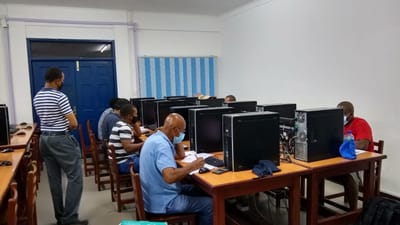
TRAINING REGISTRATION FORM 2023
This is registration form for the supported self-training for a purpose of learning together and to sit an Amateur Radio examination hosted by RSGB online.
After successful examination each member will have facility to apply for Seychelles amateur radio license with DICT and SLA. Since SARA association has the affiliation relationship with the RSGB plus group recognition by DICT, it is mandatory for each 'training applicant' to join the Association and become a member.
Note that as a member of SARA, the association can support with en-mass license application and possibly apply for a license fee discount.
After successful examination each member will have facility to apply for Seychelles amateur radio license with DICT and SLA. Since SARA association has the affiliation relationship with the RSGB plus group recognition by DICT, it is mandatory for each 'training applicant' to join the Association and become a member.
Note that as a member of SARA, the association can support with en-mass license application and possibly apply for a license fee discount.
Local Comms
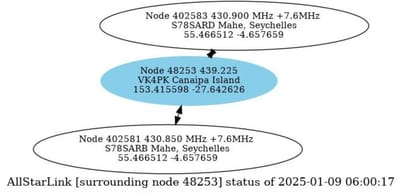

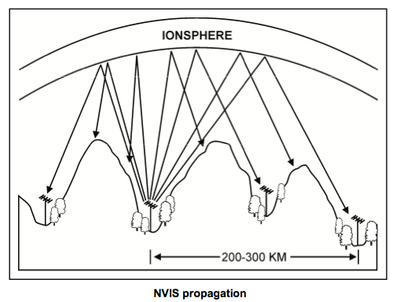
Communication Methods for Licensed Radio Amateurs
Licensed radio amateurs employ various communication methods to connect with one another.
Local Communications
For local communications, line-of-sight (LoS) techniques are commonly used. These include Simplex or Duplex frequency pairs, such as VHF (144–146 MHz) or UHF (430–440 MHz) bands, often facilitated through repeater systems.
HF for Local Coverage
High-frequency (HF) bands can also support local communications within Seychelles. This can be achieved through LoS or by utilizing NVIS (Near Vertical Incidence Skywave) propagation. NVIS allows radio signals to overcome obstacles like mountains by reflecting off the ionospheric layer at a steep angle near Zenith.
Regulatory Guidelines
In Seychelles, frequency usage is aligned with RSGB (Radio Society of Great Britain) guidelines and IARU Region 1 standards. All practices are subject to approval by SCRA, the local regulatory authority.
Posted by S79KW on 2nd April 2021
Launching and Testing the UHF Repeater Network on Mahé Island, Seychelles
We are thrilled to announce the successful launch and testing of a new UHF repeater network on Mahé Island, Seychelles. This ambitious project interconnects three strategically located stations, including a gateway to the Echolink Network, bringing enhanced communication capabilities to the region.
A Collaborative Effort
The Echolink gateway, operating under the callsign S78SARA, is hosted with the kind support of Core Technologies, a local business committed to advancing technological development in Seychelles. The repeaters in this network are assigned the following callsigns:
Technical Details
The UHF repeater network operates exclusively on the 70cm band and features the following configuration:
The addition of an Echolink gateway provides a crucial bridge to the global amateur radio community, enabling operators worldwide to connect with users on the Mahé Island network. The Echolink gateway operates under the callsign S78SARA and extends the reach of local amateur radio enthusiasts to a global audience.
Open for Development
This UHF repeater network marks a significant milestone in amateur radio operations in Seychelles, and it is just the beginning. The network is open to further ideas and developments, aiming to enhance connectivity and encourage innovation within the amateur radio community.
We invite all amateur radio operators and enthusiasts to explore and utilize this new network. Whether you're connecting locally or globally via Echolink, this platform offers exciting opportunities for collaboration and communication.
Acknowledgments
Special thanks to Core Technologies for hosting the Echolink gateway, to Glenn VK4PK for remotely hosting the AllStar server, to the club Chairman Mr Richard Perks for introducing and managing the AllStar repeaters project, to local club members for working together and to the SCRA for their regulatory support in making this project a reality. We also extend our gratitude to everyone involved in the planning, deployment, and testing phases of this network.
Let’s make the most of this state-of-the-art repeater network and continue to strengthen the bonds within the global amateur radio community!
-----
Updated and Posted by S79KW on 9th January 2025
Licensed radio amateurs employ various communication methods to connect with one another.
Local Communications
For local communications, line-of-sight (LoS) techniques are commonly used. These include Simplex or Duplex frequency pairs, such as VHF (144–146 MHz) or UHF (430–440 MHz) bands, often facilitated through repeater systems.
HF for Local Coverage
High-frequency (HF) bands can also support local communications within Seychelles. This can be achieved through LoS or by utilizing NVIS (Near Vertical Incidence Skywave) propagation. NVIS allows radio signals to overcome obstacles like mountains by reflecting off the ionospheric layer at a steep angle near Zenith.
Regulatory Guidelines
In Seychelles, frequency usage is aligned with RSGB (Radio Society of Great Britain) guidelines and IARU Region 1 standards. All practices are subject to approval by SCRA, the local regulatory authority.
Posted by S79KW on 2nd April 2021
Launching and Testing the UHF Repeater Network on Mahé Island, Seychelles
We are thrilled to announce the successful launch and testing of a new UHF repeater network on Mahé Island, Seychelles. This ambitious project interconnects three strategically located stations, including a gateway to the Echolink Network, bringing enhanced communication capabilities to the region.
A Collaborative Effort
The Echolink gateway, operating under the callsign S78SARA, is hosted with the kind support of Core Technologies, a local business committed to advancing technological development in Seychelles. The repeaters in this network are assigned the following callsigns:
- S78SARA Repeater Tx:430.8250 Rx: 438.4250 ; CTCSS: 67 Hz, TOT: 2 minutes MAX per one continuous transmission
- S78SARB Repeater Tx:430.8500 Rx: 438.4500 ; CTCSS: 67 Hz, TOT: 2 minutes MAX per one continuous transmission
- S78SARC Repeater Tx:430.8750 Rx: 438.4750 ; CTCSS: 67 Hz, TOT: 2 minutes MAX per one continuous transmission
- S78SARD Repeater Tx:430.9000 Rx: 438.5000 ; CTCSS: 67 Hz, TOT: 2 minutes MAX per one continuous transmission
Technical Details
The UHF repeater network operates exclusively on the 70cm band and features the following configuration:
- Repeater Opening Tone: 67 Hz
- Repeater Frequencies: RU66, RU68, RU70, RU72
- Interconnectivity: Enhanced coverage is achieved through RoIP (Radio over IP) technology using the AllStar Network. This setup ensures seamless retransmission across the entire network.
The addition of an Echolink gateway provides a crucial bridge to the global amateur radio community, enabling operators worldwide to connect with users on the Mahé Island network. The Echolink gateway operates under the callsign S78SARA and extends the reach of local amateur radio enthusiasts to a global audience.
Open for Development
This UHF repeater network marks a significant milestone in amateur radio operations in Seychelles, and it is just the beginning. The network is open to further ideas and developments, aiming to enhance connectivity and encourage innovation within the amateur radio community.
We invite all amateur radio operators and enthusiasts to explore and utilize this new network. Whether you're connecting locally or globally via Echolink, this platform offers exciting opportunities for collaboration and communication.
Acknowledgments
Special thanks to Core Technologies for hosting the Echolink gateway, to Glenn VK4PK for remotely hosting the AllStar server, to the club Chairman Mr Richard Perks for introducing and managing the AllStar repeaters project, to local club members for working together and to the SCRA for their regulatory support in making this project a reality. We also extend our gratitude to everyone involved in the planning, deployment, and testing phases of this network.
Let’s make the most of this state-of-the-art repeater network and continue to strengthen the bonds within the global amateur radio community!
-----
Updated and Posted by S79KW on 9th January 2025
International Comms

What is High Frequency (HF) ?
High frequency (HF) is the ITU designation[1] for the range of radio frequency electromagnetic waves (radio waves) between 3 and 30 megahertz (MHz). It is also known as the decameter band or decameter wave as its wavelengths range from one to ten decameters (ten to one hundred meters). Frequencies immediately below HF are denoted medium frequency (MF), while the next band of higher frequencies is known as the very high frequency (VHF) band. The HF band is a major part of the shortwave band of frequencies, so communication at these frequencies is often called shortwave radio. Because radio waves in this band can be reflected back to Earth by the ionosphere layer in the atmosphere – a method known as "skip" or "skywave" propagation – these frequencies are suitable for long-distance communication across intercontinental distances and for mountainous terrains which prevent line-of-sight communications.[2] The band is used by international shortwave broadcasting stations (2.31–25.82 MHz), aviation communication, government time stations, weather stations, amateur radio and citizens band services, among other uses.
*Source of Information: Wikipedia; Link to Full Article: READ MORE ABOUT HIGH FREQUENCY
-------------------------------------------------------------------------------------------------------------------------------------------------------
Some of the most popular High Frequency modulations used in Seychelles by Amateurs are:
Below is example of low power HF propagation map populated by online WSPR (Whisper) Server. Those plots are are a combination of TX and RX's i.e. heard and hearing , in this case produced by S79RP in the period of 12hrs on 14.095 MHz on 14th Sept 2020.
WSPR Spots can be monitored with Live Update on the WSPR website: WSPR NET MAP WEBSITE
NOTE: WSPR Signals are used for propagation and antenna measurements and are not counted to radio operator logbook.

FT8 (WSJT-X Software) - DIgital Modulation for making registered contacts
FT8 stands for "Franke-Taylor design, 8-FSK modulation" and was created by Joe Taylor, K1JT and Steve Franke, K9AN. It is described as being designed for "multi-hop Es where signals may be weak and fading, openings may be short, and you want fast completion of reliable, confirmable QSO's".
Below is shown screenshot of a Map from DXMAPS.COM showing last 30minutes of activity both Transmitting and Receiving using Digital Modulation of FT8. Power output of the station have to be within your license limits, in this case it was transmitting with 50 Watts only. Frequency is Internationally approved , below is shown 20m band (14.074 MHz) at 15:00 14th Sept 2020 operated by S79KW.
All around the world activities can be seen with firly live update, it is important to make correct Band selection in order to see desired frequency displayed on the map. To see HF, we choose LF-HF on the left side of the screen and can apply more filters depending on the use.
ONLINE PROPAGATION and FT8 NET MAP WEBSITE DXMAPS.COM
High frequency (HF) is the ITU designation[1] for the range of radio frequency electromagnetic waves (radio waves) between 3 and 30 megahertz (MHz). It is also known as the decameter band or decameter wave as its wavelengths range from one to ten decameters (ten to one hundred meters). Frequencies immediately below HF are denoted medium frequency (MF), while the next band of higher frequencies is known as the very high frequency (VHF) band. The HF band is a major part of the shortwave band of frequencies, so communication at these frequencies is often called shortwave radio. Because radio waves in this band can be reflected back to Earth by the ionosphere layer in the atmosphere – a method known as "skip" or "skywave" propagation – these frequencies are suitable for long-distance communication across intercontinental distances and for mountainous terrains which prevent line-of-sight communications.[2] The band is used by international shortwave broadcasting stations (2.31–25.82 MHz), aviation communication, government time stations, weather stations, amateur radio and citizens band services, among other uses.
*Source of Information: Wikipedia; Link to Full Article: READ MORE ABOUT HIGH FREQUENCY
-------------------------------------------------------------------------------------------------------------------------------------------------------
Some of the most popular High Frequency modulations used in Seychelles by Amateurs are:
- SSB: Voice Communication using Microphone
- Digital (RTTY): Digital modulation using computer connected to radio receiver or transmitter, Most Pupular ones are FT8 & WSPR
- CW: Morse Code
- WSPR (Weak Signal Propagation Reporter): Semi automated signal reporter
Below is example of low power HF propagation map populated by online WSPR (Whisper) Server. Those plots are are a combination of TX and RX's i.e. heard and hearing , in this case produced by S79RP in the period of 12hrs on 14.095 MHz on 14th Sept 2020.
WSPR Spots can be monitored with Live Update on the WSPR website: WSPR NET MAP WEBSITE
NOTE: WSPR Signals are used for propagation and antenna measurements and are not counted to radio operator logbook.

FT8 (WSJT-X Software) - DIgital Modulation for making registered contacts
FT8 stands for "Franke-Taylor design, 8-FSK modulation" and was created by Joe Taylor, K1JT and Steve Franke, K9AN. It is described as being designed for "multi-hop Es where signals may be weak and fading, openings may be short, and you want fast completion of reliable, confirmable QSO's".
Below is shown screenshot of a Map from DXMAPS.COM showing last 30minutes of activity both Transmitting and Receiving using Digital Modulation of FT8. Power output of the station have to be within your license limits, in this case it was transmitting with 50 Watts only. Frequency is Internationally approved , below is shown 20m band (14.074 MHz) at 15:00 14th Sept 2020 operated by S79KW.
All around the world activities can be seen with firly live update, it is important to make correct Band selection in order to see desired frequency displayed on the map. To see HF, we choose LF-HF on the left side of the screen and can apply more filters depending on the use.
ONLINE PROPAGATION and FT8 NET MAP WEBSITE DXMAPS.COM
Visitor Licence
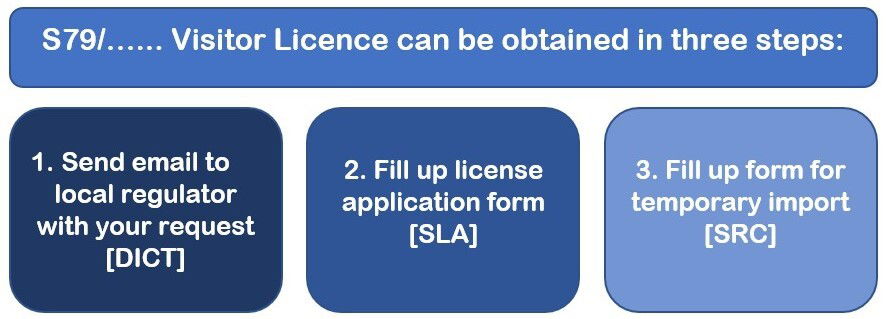 VISITOR LICENCE APPLICATION MANUAL:
VISITOR LICENCE APPLICATION MANUAL:- For any visitors wishing to operate Amateur Radios in Seychelles they have to contact the Local Regulator DICT (Department Department of Information Communications Technology - Communications Division), SLA (Seychelles Licensing Authority) and SRC (Seychelles Revenue Commission) and have all necessary paperwork in hand before arrival to the country.
TO email "DICT": communications@ict.gov.sc
CC email: "SLA" (Ms Miranda Benoiton): miranda@sla.sc
- We recommend including in your email as much information as possible about your planned trip and intended Radio Amateur Activities. It is recommended you include below information in your initial request:
"Dear DICT,
My name is xxx__xxxx and I am planning to visit Seychelles and enjoy radio amateur hobby.
I am planning to operate (please specify frequency bands) using the equipment (please specify transceiver(s) make models) from the following locations (please specify locations, i.e. Mahe, Praslin, La-Digue, outer Islands, etc).
Further details are provided below:"
PLEASE INCLUDE ALL BELOW DETAILS:
- Your contact information
A) Please include “The contact details (telephone numbers and e-mail addresses) of your location of stay in Seychelles”.
- Copy of your passport (photo page)
- Dates you will be staying in Seychelles
- Location of your accommodation(s)
- Copy of your current amateur licence
- The make and model and quantity of:
A) Amateur radios;
B) Antennas to be installed;
C) Typical setup of the antenna system to be used (please provide pictures of setup if available).
- Location(s) of operating the equipment in the Seychelles
(e.g.: At Accommodation, from the vehicle, on the move, as maritime mobile, operating from summits [SOTA], operating in the field, etc.)
- Intended use of equipment
(e.g.: International and Local communications on HF, EME, VHF/UHF Low Orbit Satellite Repeaters, Talking to Local HAMs, etc.)
2. You wait for DICT to respond, and you follow their instructions accordingly.
3. At one stage you will need to fill-up an SLA Application form (attached below link) for for your Local Licence to be issued.
NOTE: You are welcome to reach out to Local Amateurs for guidance and/or assistance with filling-up the form.
- LICENCE APPLICATION FORM (from SLA Website). \
NOTE: SLA will advise you concerning any licensing fees - if applicable.
3. Once you receive "Authorization to Import and Operate" you need to email final form to local customs to stamp your "TEMPORARY ADMISSION OF GOODS" as radios are Import Control item in Seychelles.
FORM TO DOWNLOAD: https://www.src.gov.sc/resources/Forms/2019/temporaryadmission2019.pdf
Email it to: paul.barrack@src.gov.sc
NOTE: If you fail to get this form stamped before your arrival, your radio equipment can be held at customs passenger terminal and delayed for clearing.
4. On arrival at the Seychelles airport you should declare your radio equipment to a customs officer and show copy of above form as well as Authorization Letter from DICT.
REFERENCE TO LOCAL BANDPLAN:
- AMATEUR BAND PLAN IN SEYCHELLES: Download Amateur Band Plan (DICT Website)
IF ABOVE IS ANY OF DIFFICULTY, PLEASE CONTACT US VIA CONTACT FORM OR EMAIL
^Posted By Kamil Korneluk (S79KW) on 11th Dec 2020 & Updated on 9th May 2021 by S79KW as well as 27th September 2021 (simplified version).

Radio Weather


Weather conditions here and overseas are important to the Amateur Radio community. There are two aspects that affect us;
Health & Safety
If you have antennas you need to be careful about lightning and strong winds.
RF Noise
If there is lightning in our area or the area where you are trying to communicate with, then the noise floor will be affected.
Here are links to two sites that help us understand more about lightning conditions around the world. The blitzortung network is somewhat limited in it's coverage of the Indian Ocean so it might be a good idea to open both links so you can run them in parallel to enable you to compare and get the best reports for the area you are interested in;
http://wwlln.net/ 👀
https://map.blitzortung.org/#1/24.4/8 👀
SPACE WEATHER
What is happening with the sun can have an effect on RF communications, mainly in the HF bands.
Here is a link to an interesting site that tells you all about the subject and it self has lots of interesting links to other areas you may be interested to explore;
https://www.swpc.noaa.gov/impacts/hf-radio-communications 👀
Application for Membership
PLEASE DOWNLOAD AND READ SARA CONSTITUTION BEFORE SENDING THE APPLICATION FORM LINK: DOWNLOAD A COPY OF SARA CONSTITUTION
_________________________________________________________________________________
I wish to join the Seychelles Amateur Radio Association and I undertake to abide by the Constitution of the Association and the regulations governing the operation of the Amateur Radio in Seychelles.
Please note newcomers to SARA (1st year membership) annual fee is 300 SR
Following years the annual member fee is 500 SR,
Note that membership fees are correctly registered to SARA accounts and all discussed at AGM with full transparency to all members.
_________________________________________________________________________________
I wish to join the Seychelles Amateur Radio Association and I undertake to abide by the Constitution of the Association and the regulations governing the operation of the Amateur Radio in Seychelles.
Please note newcomers to SARA (1st year membership) annual fee is 300 SR
Following years the annual member fee is 500 SR,
Note that membership fees are correctly registered to SARA accounts and all discussed at AGM with full transparency to all members.
Contact us
- Victoria, Mahé, Seychelles
- PO Box 609,
Website Statistics
AGM 2023

This is first online page of SARA AGM 2023, its experimental and we all believe in teamwork and to move forward for the next year.
AGENDA
SARA Annual General Meeting #5
Venue: SARA Shack
Date/time: Saturday 20th May 2023 - 2pm
Pre meeting
a) Secretary records name of those attending and any proxy arrangements
b) Secretary records apologies received for non attendance.
1. Chairperson announces if a quorum has been met
2. Adoption of previous AGM minutes to be an accurate record
3. Thanks to the 2022 committee and helpers
4. Election of new committee for 2023
5. Review of actions arising from last meeting
6. Financial report with audited accounts and request to adopt
7. Chairperson’s report
8. QSL Manager’s report
9. Subscription review
10. Issues from the floor
11. Any other business
12. DONM
AGENDA
SARA Annual General Meeting #5
Venue: SARA Shack
Date/time: Saturday 20th May 2023 - 2pm
Pre meeting
a) Secretary records name of those attending and any proxy arrangements
b) Secretary records apologies received for non attendance.
1. Chairperson announces if a quorum has been met
2. Adoption of previous AGM minutes to be an accurate record
3. Thanks to the 2022 committee and helpers
4. Election of new committee for 2023
5. Review of actions arising from last meeting
6. Financial report with audited accounts and request to adopt
7. Chairperson’s report
8. QSL Manager’s report
9. Subscription review
10. Issues from the floor
11. Any other business
12. DONM
PROXY Form AGM 2023
If you are a SARA recognized member and you wish to nominate a Proxy for the AGM in order to assist with reaching Quorum, please kindly use this form as our new digital technique. Please note each request will be verified before final approval.
